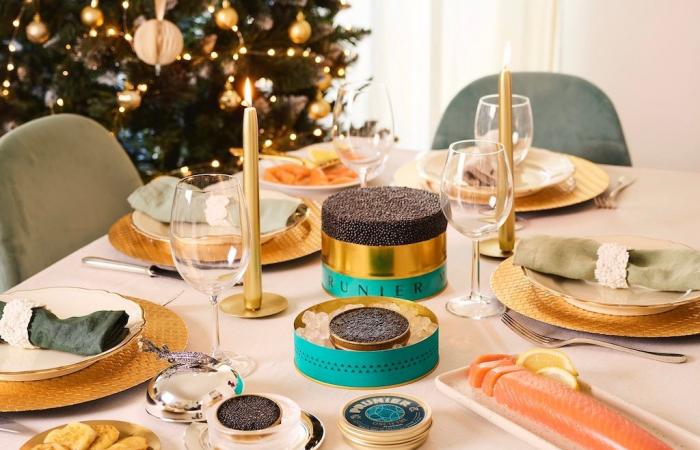Prunier, a 100% French caviar for an exceptional table.
© DR
We would like to talk about democratization, but caviar remains an expensive product. Even though China has entered the game of caviar production and holds first place ahead of Italy and France. Of the 630 tonnes consumed each year worldwide, more than 350 tonnes come from China.
The rest after this ad
The fact remains that caviar made in France is the pride of its producers and still conquers the French accustomed to sturgeon eggs raised in Aquitaine. Apart from questions of provenance which remain a somewhat heated debate in the field, here are seven pieces of information on these little grains of desire.
- The word “caviar” comes from havia which means “egg” in Persian. These are the eggs of the sturgeon which are salted and dried.
- The sturgeon has been present in the northern hemisphere for more than 250 million years. This prehistoric fish with golden eggs can live to be old (some reach 100 years).
- There are two kinds of caviar, wild and farmed. Today, wild sturgeon is on the verge of extinction due to overfishing and poaching. The importation of wild caviar is prohibited in Europe.
- There are 27 species of sturgeon, and each produces a different caviar. Only a few species of caviar are known: Baeri, Beluga, Oscietra and Sevruga. They vary in size, color and flavor.
- Caviar is one of the most expensive foods. First of all because its production requires a lot of patience: sturgeon must be raised for up to six or seven years depending on the species before the females produce eggs. For the Beluga, you have to wait up to twenty years. Additionally, a female sturgeon only spawns once. Manufacturing also takes time: the eggs are rinsed and sorted and only the most beautiful are kept;
- Caviar is very rich in vitamins (E, B1, B5, B9, B12), proteins, omega 3, magnesium. It is also very loaded with vitamin D and therefore contributes to the fixation of calcium in the bones. To top it all off, it is very low in calories.
- Before serving, it should be stored in the coldest part of the refrigerator (4°C). Once the can is opened, it should be served quickly (less than 24 hours).






